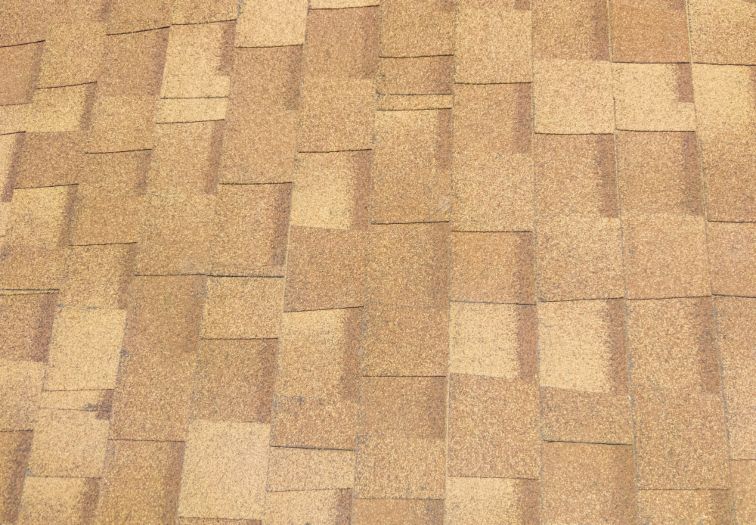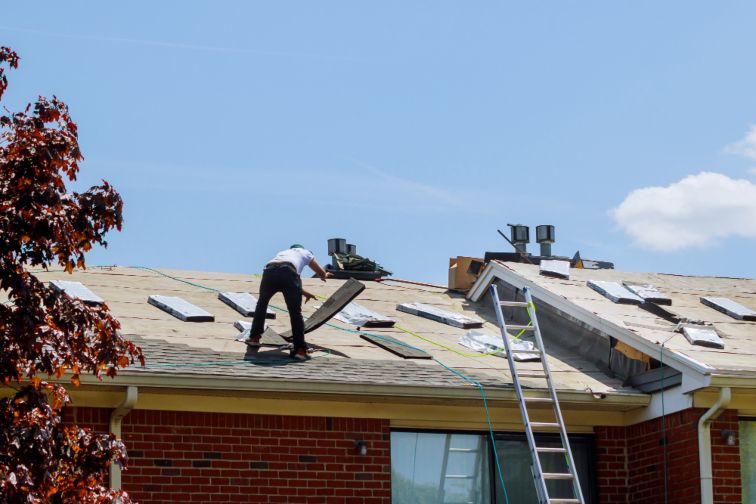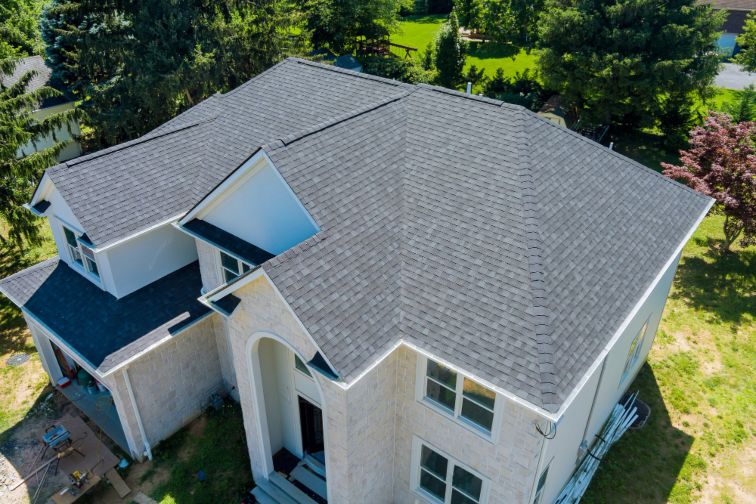
There is no doubt that setting up or replacing your roof is one of the biggest investments you will make regarding your home. That’s why it’s extremely important to truly understand what this endeavor entails and what you need to pay attention to when deciding which local roofing company to contract or what manufacturers’ offer to accept. Here, we are going to talk about asphalt roof shingles and about how to understand your roof shingles warranty.
Below is a detailed guide that will show you how to assess if it’s time for a roof replacement and what types of roof warranties you can count on.
How to Identify Defective Shingles
The first thing you need to establish is if there are defective shingles on your roof or not. It would be good for someone to thoroughly inspect the condition of your roof from time to time. If there are some cracks and splits on shingles, chances are they were damaged in the past. Also, if you notice some bald spots that are in the process of flaking off, that is a concern and is a clear sign of defect. Bear in mind that your roof shingles won’t look as good as new even if they have been installed for less than a year, given that they are exposed to all sorts of weather elements, but that doesn’t mean they should be replaced at that point. If there is some curling at the edges of shingles, that’s fine too, but significant changes of this sort could be alarming.
How to Determine if the Problem Was Caused by a Manufacturer’s Defect or Improper Installation

If there is some sort of defect on your roof shingles, it is crucial for you to know the difference between damages caused by improper installation and those that are clearly manufacturer’s defects. Why? Because this ascertainment will determine whether or not you can cash out your warranty or not. In most cases, the warranty will be valid only if the shingles have a manufacturer’s defect, and in case it is a result of incorrect installation, the one that will be paying for that mistake is you. So, if your roofer nailed shingles improperly instead of where it’s recommended by the manufacturer to attach the shingles to roof construction, and your roof ends up damaged due to strong winds in that area, your warranty won’t cover it.
What are Possible Manufacturer’s Defects?
When it comes to the most common manufacturer’s defects on shingles, you can expect to see some cracking, blistering, splitting, as well as damaged surface texture. And those things can be covered with a shingle warranty. On the other hand, slightly curled corners are not considered to be a problem, neither is decoloration. But in order to be sure, you should contact several roofing contractors that will give you their professional assessment, after which you can decide whether or not you should try to cash out the warranty.
Types of Roofing Warranties
When dealing with the roofing subject, you need to know that there are two main types of warranties – shingles, or manufacturer warranty, and contractor warranty. It would be best for you to be familiar with what each one of them covers and what you need to do in order to use them.
Shingles Warranty
Shingles warranty is a warranty provided by your shingles manufacturer, and it usually comes with 25 to 30 years of coverage. At least that’s the case with an asphalt shingle warranty. Some others may last for 50 years or a lifetime, depending on the brand and the company that produces these roofing materials.
What is Covered by Shingles Warranty
In most cases, a regular shingles warranty refers only to the materials. That means that you will be able to take advantage of the warranty only in cases when your shingles are damaged, due to only the manufacturer’s defects.
What’s not Covered by Shingles Warranty
Your shingles warranty won’t cover the workmanship. The expense of repairing your roof and changing shingles will be on you. And it would be good for you to know how in these cases the labor is way more expensive than the shingles themselves. As it turns out, the price of shingles that need to be replaced will cover up to 20% of the total cost, while the labor behind it and all other materials like roof sheathing, nails, underlayment, etc. will carry the rest of it.
Contractor Warranty
A contractor warranty is a whole other element connected to shingles or the manufacturer. It is the warranty most serious contractors will offer you, and they usually last up to five years. This is basically a roof workmanship warranty that covers the installation process – faults and errors that were caused by the company’s installers.
How to Protect Your Warranty

There are so many cases where people wrongly believed that they were covered with a roof shingle warranty when actually it was nulled, expired, or simply void. And let us remind you that roofing projects are a huge investment, no matter if you need to replace the entire shingles construction or only one part of it. That’s why you have to be well informed to avoid this from happening – this is how:
Do Regular Inspections
In order to have a roofing warranty, you should conduct an inspection of the roof from time to time. It would be best if you would do that every year, or at least once in two years, after which you should allow your contractor to fix and repair any or all small damages that happened from wear and tear. We refer to dealing with light shingle damage, flashing, vents problems, etc.
Make Sure to Register Your Warranty
It is essential to remember to register your warranty by submitting it to the manufacturer. It’s quite simple – if you don’t do it, you won’t be covered with it. But if you want to enhance it, you will have to pay attention to several other details. For starters, you will have to find a roof installing contractor that has certain credentials like Roofing Above All (we’re certified Master Elite Contractors with GAF Roofing), which can register the warranty on your behalf.
Read the Fine Print
And finally, let us remind you about the importance of fine print. You really need to study the warranty agreement the manufacturer is offering you and understand the details. For instance, in some cases, in order for the warranty to be valid, the contractor who is going to install your shingles needs to be certified and authorized by the shingles manufacturer and basically show proof of this to you. Make sure you don’t have any doubts about each statement in order to avoid being denied your warranty.
Prorated Warranty
Now, even though your shingles warranty usually only covers the cost of shingles replacement, it turns out that most of these warranties are prorated, which means they are defined with some prorated terms. These types of warranties cover both the material and the labor costs, but only for a certain time frame, like for the first years or so. Also, there are some other directives, for instance the warranty will cover both of these variables but only for some specific amount of square feet of shingles replacement. Bear in mind that after that first period passes, the warranty will only refer to shingles at a prorated cost that’s based on the age of the roof. That means that with time you will be covered with less and less money via your prorated warranty.
Transferable Warranty
It’s not that often, but there are manufacturers who support a transferable warranty. Basically the old homeowner’s warranty is forwarded to the new homeowner. This way they can continue enjoying the fruits of your earlier decisions regarding roof installment. But again, those types of contracts are all about the fine print, so make sure to read them carefully and then decide if that’s something you may be interested in. If you find yourself in a position to buy an already existing house, remember to ask the owner if there are any sort of contracts between them and the shingles manufacturer or the contractor.
FAQ
Will the warranty cover if my roof and shingles are damaged by winds?
In most cases, the manufacturer warranty won’t cover you if the wind damages your roof shingles. But there are some companies that have wind warranty included in their offer, in which case you can be sure any damage made by wind will be repaired and covered. These warranties can last for 15 years, but the maximum wind speed coverage will depend on several factors, like the type of shingles installed on your roof, or the installation method.
What are the key questions to ask when evaluating shingle warranties?
In situations where you are evaluating several shingle warranties, you need to ask the right questions. The ones that will help you decide what offer to accept and who to trust. Those questions should be based on you finding out what are the specific terms of your warranty, what are the exact defects and damages that will be covered with it, and also will all replacement costs be covered or only part of them. Besides that, you should openly ask what can void your warranty and what you have to do in order to maintain the warranty agreement. Also, put on your list these questions – does the roofing contractor have factory trained and certified installers on every job and can show proof; will they offer the workmanship (contractor) warranty in writing; will they offer the materials warranty in writing; and does the roofing contractor offer manufacturer backed prorated and non-prorated lifetime warranties in writing?
Conclusion
We at Roofing Above All believe you are now informed about all the important information you need to know about the roofing warranty that comes with your new or existing roof shingles. And there is no doubt this text will serve you, sooner or later, because no matter how careful and full of precaution you are, the time for a roof shingles repairment will come. With Michigan weather you can be sure of that! That’s why it’s crucial for you to choose the right roof shingles company and get the best possible warranty today.